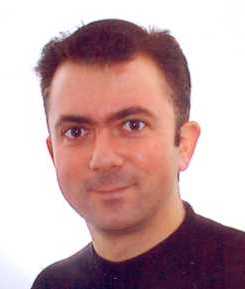CS Colloquium Series @ UCY
Department of Computer Science - University of Cyprus
The Department of Computer Science at the University of Cyprus holds research colloquiums and social hours approximately once weekly. All university students, faculty, and staff are invited to attend. Notifications about new and upcoming events are automatically disseminated to a variety of institutional lists.
If you don't receive these notifications, but want to get informed about upcoming colloquium announcements, you can do the following:
Colloquium Coordinator: Demetris Zeinalipour
Colloquium: On the quest of understanding the brain: from neural coding to self-control behaviour, Dr. Chris Christodoulou (University of Cyprus, Cyprus), Friday, January 25, 2019, 9.30-10.30 EET.
The Department of Computer Science at the University of Cyprus cordially invites you to the Colloquium entitled:
On the quest of understanding the brain: from neural coding to self-control behaviour
 |
Speaker: Dr. Chris Christodoulou |
Abstract:
In the quest of understanding the brain we have to investigate it at all
levels: from the behaviours we are capable of, to the synapses, neurons
and local neuronal circuits. In the latter, which is a bottom up
approach, one fundamental problem is to understand how neurons code
information, which could provide a basis for the analytical evaluation
of the brain's information processing capability. In the former, which
is a top down approach, self-control is an irrational behaviour worth
investigating and understanding. This talk will touch both on aspects of
neural coding and of modelling self-control behaviour.
Natural cortical neuron responses have been found to be highly irregular
at high firing rates, which is incosistent with temporal integration of
random postsynaptic potentials. This gave rise to two conflicting
possible explanations on the nature of the neural code: is it based on
rate encoding or is it based on precise processing of coincident
presynaptic events? Moreover, another issue which arose was to identify
what determines the highly variable firing observed in neurons. This
part of the talk will address the latter with a reference to the
possible functional role of high firing irregularity to learning
optimisation. It will also discuss possible ways to address the neuronal
coding controversy through: (i) a measure, based on the membrane
potential slope prior to firing, inferring the relative contribution of
coincidence detection and temporal integration to the firing of spikes
of a simple neuron model and (ii) with a reference to a spike-based
measure based on the discrete reverse correlation.
Self-control can be defined as choosing a large delayed reward, while
precommitment is the making of a choice with the specific aim of denying
oneself future choices. Problems in exercising self control, suggest a
conflict between cognition and motivation, which has been linked to
competition between higher and lower brain functions or different value
systems in the brain; in particular, parts of the limbic system are
preferentially activated by decisions involving instant rewards, whereas
regions of the prefrontal cortex are engaged uniformly by intertemporal
choices irrespective of delay. This premise of an internal process model
lead to a behaviour model being proposed, based on which we designed and
implemented a computational model of self-control. This part of the talk
will present this model and its results, highlighting its generality to
multiagent reinforcement learning tasks and finish by an attempt to
relate self-control behaviour with consciousness.
Short Bio:
Chris Christodoulou received a BEng degree in Electronic Engineering
from Queen Mary and Westfield College, University of London (1991) and a
PhD in Computational Neuroscience/Neural Networks from King's College,
University of London (1997). He also holds a BA degree in German from
Birkbeck College, University of London (2008). He worked as a
Postgraduate Research Assistant (1991-1995) and a Postdoctoral Research
Associate (1995-1997) at the Centre for Neural Networks, King's College,
University of London. He joined Birkbeck College, University of London
as a Lecturer in 1997 where he worked till 2005 and was also a Visiting
Research Fellow at King's College (1997-2001). Currently, he is an
Associate Professor at the University of Cyprus after joining in 2005.
Since 2005 he is also a Visiting Research Fellow at Birkbeck College.
Chris' research interests focus on Computational Neuroscience as well as
on Neural Networks.
Note:
This colloquium is part of the speaker's procedure for evaluation and promotion from Associate Professor to Professor.